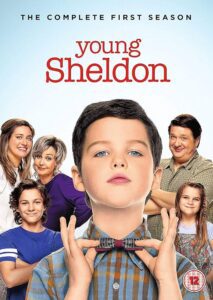Young parents of an autistic child beware: don’t treat your “special needs” child any differently than your “normal” ones. Caution: You may be destroying your relationships and even your marriage.
As a parent of an Asperger’s (now termed High-Functioning Autism) son, uncle to a middle-age nephew on the spectrum, and job coach who has met with numerous families with autistic, Downs, OCD, ADHD, ID and “you name it” disorders, I’ve seen an overabundance of coddling of these uniquely made individuals. This of course is especially true of the parent who endured nine months of harboring this vulnerable fetus inside her body before pushing it into the hard, cruel world outside.
Anyone who has watched a few segments of the recently concluded “Young Sheldon” TV series has seen how the overly-protective (smothering) Mary has treated her child genius Sheldon to the point of alienating the other unique people living in her household.
![]()
![]()
 While it never was directly stated that Sheldon is on the spectrum (which is a good thing because we don’t want people thinking everyone with autism is a natural genius– aka Elon Musk), he does exhibit some sensory and social abnormalities seen in ASD people. Thus, I think it provides some helpful lessons for parents with autistic kids while delivering some light and funny scenes at the same time.
While it never was directly stated that Sheldon is on the spectrum (which is a good thing because we don’t want people thinking everyone with autism is a natural genius– aka Elon Musk), he does exhibit some sensory and social abnormalities seen in ASD people. Thus, I think it provides some helpful lessons for parents with autistic kids while delivering some light and funny scenes at the same time.
In one episode, Sheldon meets all the requirements to enter college when he’s just 11-years-old and in high school with his older brother, Georgie. After a lengthy family meeting and repeated pleadings from Sheldon, Mary agrees to allow Sheldon to try out college by first staying with his mentor Dr. Sturgis.
Before reaching this momentous decision, we see several scenes where Mary frets and worries over her special child she calls “baby” while ignoring Sheldon’s twin sister Missy and dissing Georgie. For them it’s nothing new. That’s the way it’s always been with Sheldon in the house.
Finally, the day comes and Sheldon is off to college in another city and living with Dr. Sturgis. Mary’s baby is gone and all the hours she spent doting over Sheldon are now empty. Mary awkwardly makes several feeble attempts to engage with Missy and Georgie but they rebuff her (for good reason).
Mary ends the evening sobbing in the arms of hubby George. “Sheldon’s gone to college; I’ll never see him.” George looks down at his wife and says, “Don’t worry, you’ve still got Missy and Georgie.”
When you think of it, “special needs” is a bad choice of words. The person isn’t special but unique as everyone born is. Autism author Temple Grandin has a nice way of stating it: “Different but not less.” The most important thing is to be aware and educated about the many unique differences – like autism—that many people are born with. This is just one of the tasks a job coach performs while working with employers.
So, parents, stop giving preferential or “special” treatment to that one unique child who really probably wants to be treated the same as anyone else, unless, of course, his name is Sheldon Cooper.



